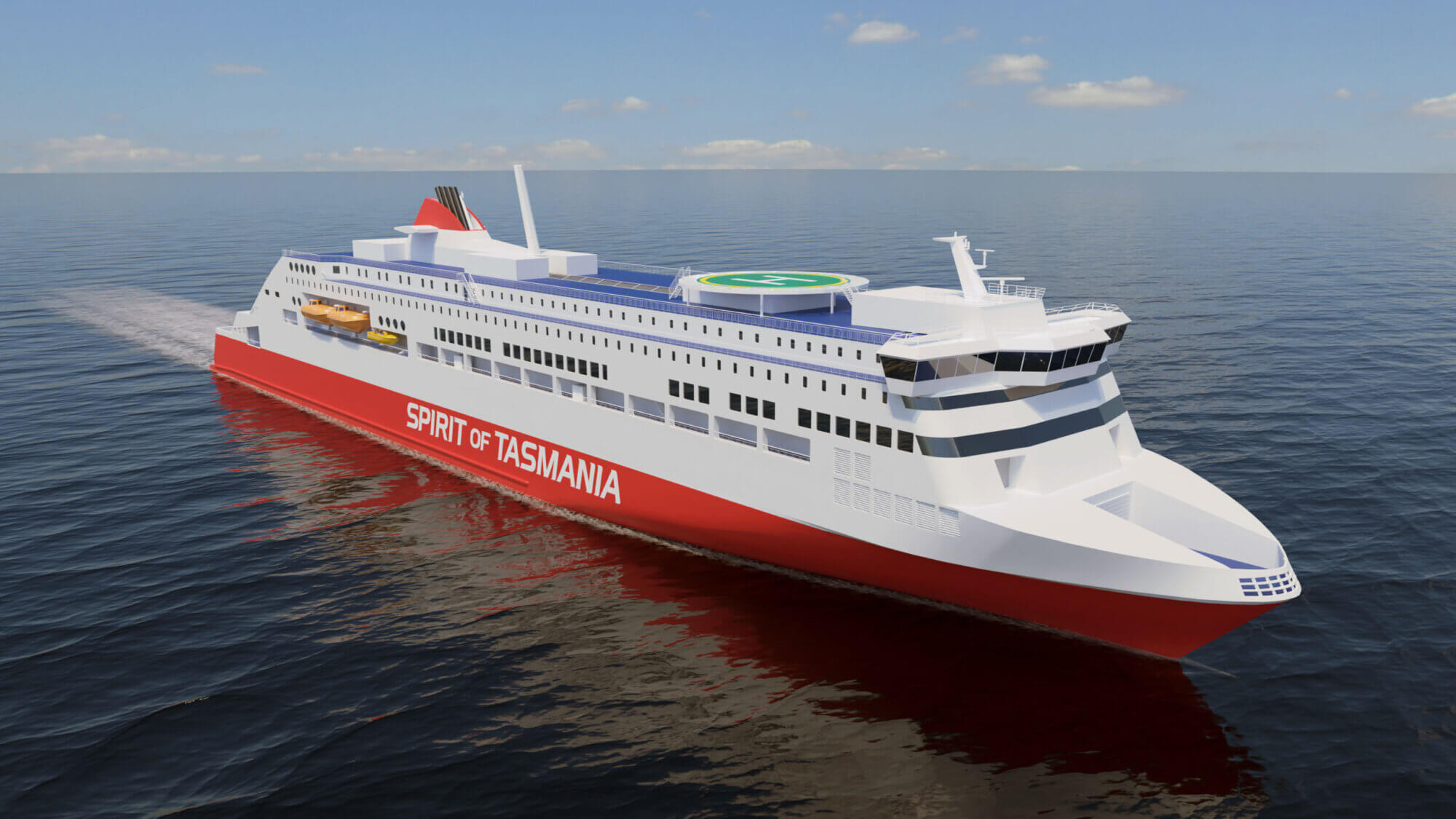Rauma Marine Constructions and Tasmanian shipping company TT-Line Company have finalised an agreement for the construction of two car and passenger ferries at Rauma shipyard. The employment impact of the project is approximately 3,500 person-years and will increase the number of ships to be built by RMC to eight. The construction of TT-Line’s vessels will begin in spring 2022.

TT-Line had to withdraw from a previous Memorandum of Understanding last summer due to the coronavirus pandemic. Negotiations resumed in March this year, initiated by the Tasmanian government.
Jyrki Heinimaa, CEO of Rauma Marine Constructions, is happy with how the two parties reached the agreement despite a very challenging situation worldwide.
“We are very grateful for the trust shown to us by TT-Line Company and their representatives. This agreement means that our customer believes that we can offer a world-class solution that is perfect for their business, even in challenging operating conditions,” he says.
“We eagerly await these three years of fruitful collaboration with RMC. The vessels will also make extensive use of the expertise of Tasmanian companies,” says Bernard Dwyer, CEO of TT-Line Company.
Construction of the new car and passenger ferries will begin in spring 2022. The first vessel will be delivered to TT-Line in late 2023 and the second one in late 2024. Once completed, the vessels will operate in challenging conditions on the Geelong–Devonport route running between mainland Australia and the island State of Tasmania. The ferries will accommodate 1,800 passengers and will have an approximate gross tonnage of 48,000. The vessels will replace the Spirit of Tasmania I and II, both built in Finland in 1998.
“An excellent continuation of RMC’s growth story and last year’s good result”
The agreement with TT-Line is a positive signal for RMC’s financial outlook for 2021, as it increases the company’s order book to approximately EUR 1.6 billion and increases the number of ship projects at the shipyard to four.
RMC also achieved an excellent financial result last year despite the global coronavirus pandemic. In 2020, the company’s net sales more than quintupled from EUR 38.1 million in the previous year to EUR 220.1 million. Operating profit, on the other hand, increased from EUR 1.9 million in the previous year to EUR 6.7 million.
“The agreement with TT-Line Company is an excellent continuation of RMC’s growth story and last year’s good result. We will continue on our set growth path to build car and passenger ferries in Rauma, which also means stable growth in the shipbuilding industry in Finland. Last year, we strengthened our personnel by almost 50 per cent, meaning our organisation is more than ready for a new 3,500-person-year project,” says Heinimaa.
In addition to TT-Line’s vessels, RMC is currently working on car and passenger ferries for Finnish shipping company Wasaline and Estonian shipping company Tallink, as well as four multi-purpose corvettes for the Finnish Defence Forces. After the challenges due to the coronavirus pandemic at the beginning of the year, production work has resumed to normal capacity. The company shut down production for a while in February after a cluster of coronavirus infections was revealed among workers at the shipyard. Following the detection of coronavirus cases, RMC immediately implemented a more strict safety plan, the functioning of which is being closely monitored. The coronavirus situation has been brought under control thanks to those safety measures.